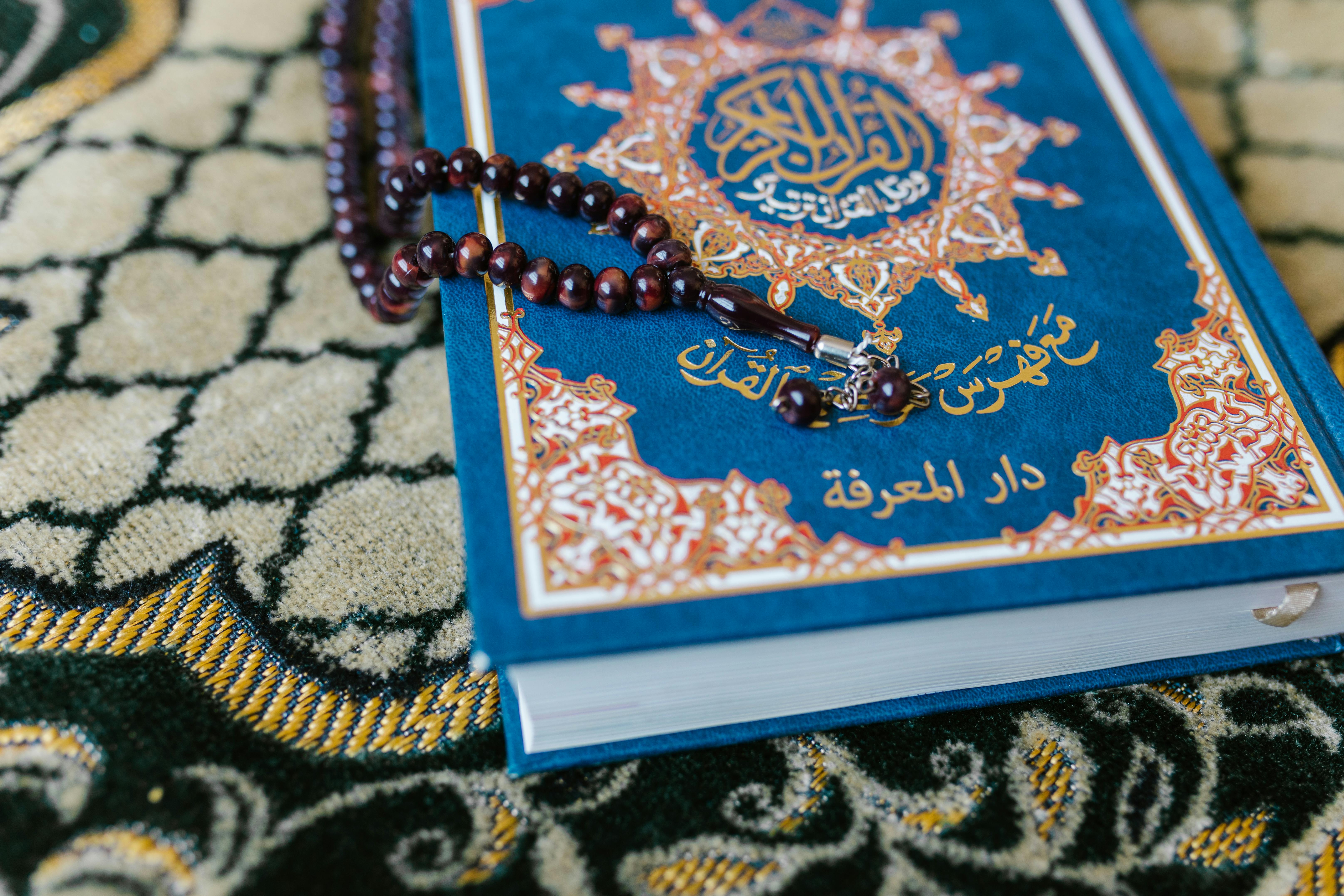Experience the beauty of Quranic recitation with the art of Tilawat.
Discover the profoundness of the Quran through the melodious recitation known as Tilawat. Immerse yourself in the serenity and wisdom of the Quranic verses. Whether you’re a beginner or an experienced reciter, Quran Ki Tilawat is a spiritual journey that touches the heart and soul. Join millions of believers who find solace, guidance, and peace through the recitation of the Quran. Start your Tilawat practice today!
The recitation of the Quran, known as Quran Ki Tilawat, holds immense importance for Muslims around the world. It is not merely a religious practice, but a means of seeking guidance, enlightenment, and spiritual connection. The power of Quran Ki Tilawat lies in its ability to touch the hearts and souls of believers, providing them with solace, wisdom, and a source of divine guidance.
Quran Ki Tilawat, which dates back to the time of Prophet Muhammad (peace be upon him), carries a rich history and tradition. Muslims believe that the Quran is the direct word of Allah (God) revealed to the Prophet Muhammad (peace be upon him) through the angel Gabriel. Statistically, it is estimated that over 1.8 billion Muslims around the world recite and engage with the Quran on a daily basis, making it one of the most widely read and memorized books in the world. Quran Ki Tilawat is not only seen as a religious duty, but also as a means to find guidance in daily life, seek solace in times of difficulty, and cultivate a deeper connection with the divine.

Understanding the Significance of Quran Ki Tilawat
Quran Ki Tilawat, or the recitation of the Quran, is an integral part of the lives of Muslims around the world. It holds deep spiritual and religious significance and is considered a means of connecting with Allah (SWT) and seeking guidance and blessings. The Quran, believed to be the word of Allah revealed to the Prophet Muhammad (PBUH), is the holy book of Islam and serves as a guide for Muslims in matters of faith, morality, and conduct. Reciting the Quran not only fulfills religious obligations but also provides numerous benefits to individuals, both spiritually and mentally.
Quran Ki Tilawat is a practice that is highly encouraged and praised in Islam. Muslims are encouraged to regularly recite, memorize, and ponder over the verses of the Quran. The act of reciting the Quran is believed to bring countless rewards and blessings. It is considered a form of worship that strengthens one’s relationship with Allah (SWT) and increases spiritual well-being. Furthermore, the recitation of the Quran is also a means of seeking guidance, finding solace in times of difficulty, and attaining peace and tranquility.
To truly understand the significance of Quran Ki Tilawat, it is important to delve into the benefits it offers and the impact it can have on the life of a Muslim. By consistently engaging in the recitation of the Quran, individuals can experience a deeper sense of faith, increased knowledge and understanding, and a stronger connection to the teachings of Islam. The recitation of the Quran is not just the mere reading of the Arabic text, but it involves reflecting on the meaning, internalizing the message, and implementing its teachings in one’s daily life.
The Spiritual Benefits of Quran Ki Tilawat
Quran Ki Tilawat holds immense spiritual benefits for individuals who engage in this practice. When a Muslim recites the Quran with sincerity and devotion, it creates a profound connection between the reader and Allah (SWT). The recitation of the divine words elevates one’s spiritual state, purifies the heart, and strengthens the bond with the Creator. It is a means of seeking forgiveness, repenting for one’s sins, and gaining closeness to Allah (SWT).
Reciting the Quran also brings a sense of peace and tranquility to the mind and soul. In a world filled with chaos and distractions, Quran Ki Tilawat serves as a source of solace and comfort. It provides a spiritual retreat, enabling individuals to seek solace in the verses of the Quran and find inner peace. The recitation of the Quran has a calming effect on the heart and helps in overcoming stress, anxiety, and other emotional challenges.
Furthermore, Quran Ki Tilawat allows Muslims to deepen their understanding of the deen (religion) and gain insight into the teachings of Islam. By regularly reciting and reflecting upon the Quran, individuals can strengthen their faith, increase their knowledge, and develop a closer relationship with Allah (SWT). The Quran serves as a guidebook for Muslims, offering wisdom, guidance, and solutions to the complexities of life. It provides a moral compass and offers practical advice on how to live a righteous and fulfilling life.
Overall, Quran Ki Tilawat has immense spiritual benefits, bringing individuals closer to Allah (SWT), providing emotional solace, and enhancing their understanding of Islam.
The Intellectual Benefits of Quran Ki Tilawat
Engaging in Quran Ki Tilawat not only has spiritual benefits but also enriches one’s intellectual abilities. The Quran is a profound linguistic masterpiece, written in eloquent Arabic. By reciting the Quran, individuals become exposed to the beauty and complexity of the Arabic language, enhancing their language skills and sharpening their intellectual capacities. Through the recitation and study of the Quran, Muslims can expand their vocabulary, improve their pronunciation, and deepen their understanding of Arabic grammar and syntax.
The Quran also contains a wealth of knowledge and wisdom encompassing various areas of life, including history, science, morality, and jurisprudence. By regularly reciting the Quran, individuals can broaden their knowledge and intellectual horizons. It encourages critical thinking, reflection, and contemplation, fostering a mindset of lifelong learning and intellectual growth.
Moreover, Quran Ki Tilawat encourages individuals to engage in deep thought and ponder upon the verses of the Quran. The Quran poses rhetorical questions, presents parables and stories, and challenges individuals to reflect on the signs of Allah (SWT) present in the universe. This intellectual engagement stimulates the mind and promotes intellectual curiosity, leading to a greater understanding of the world and oneself.
Quran Ki Tilawat for Healing and Guidance
Quran Ki Tilawat not only offers spiritual and intellectual benefits but also serves as a powerful source of healing and guidance. The verses of the Quran contain profound wisdom and insights that can provide comfort and guidance in times of difficulty and uncertainty. Reciting and reflecting upon the Quran during challenging moments can bring solace, offer solutions, and provide a sense of direction.
The Quran has a remarkable ability to heal the heart and soul. It provides reassurance, strength, and hope to individuals experiencing emotional or physical pain. The recitation of the Quran can alleviate sadness, anxiety, and grief, bringing peace and tranquility to the troubled heart. The healing power of the Quran is derived from its divine origin, and believers find solace in the words of Allah (SWT) during times of distress.
Furthermore, Quran Ki Tilawat is a means of seeking guidance and finding answers to life’s questions. The Quran offers divine guidance for every aspect of life, including personal relationships, ethics, social justice, and governance. By reciting and contemplating upon the verses of the Quran, individuals can find answers to various dilemmas and make informed decisions based on Islamic principles and values.
In conclusion, Quran Ki Tilawat is a practice of great significance in Islam. It offers numerous benefits, both spiritual and intellectual, and serves as a source of healing and guidance. Muslims are encouraged to engage in the regular recitation of the Quran, reflecting upon its verses, and implementing its teachings in their lives. By doing so, they can deepen their connection with Allah (SWT), gain knowledge and wisdom, and find solace and guidance in the divine words.
For more information on the importance and benefits of Quran Ki Tilawat, you can visit a reliable Islamic website or consult a knowledgeable scholar.

Frequently Asked Questions
Quran Ki Tilawat is the recitation of the Quran, the holy book of Islam. It is an important practice for Muslims and holds great spiritual significance. Here are some frequently asked questions about Quran Ki Tilawat:
1. What is the importance of Quran Ki Tilawat in Islam?
Quran Ki Tilawat is of immense importance in Islam. It is considered a form of worship and a means to connect with Allah. The recitation of the Quran is believed to bring blessings, purification, and guidance to the reader. It is a way to understand and follow the teachings of Islam and gain spiritual enlightenment.
Moreover, the Quran is regarded as the literal word of Allah, revealed to the Prophet Muhammad (peace be upon him) through the angel Gabriel. By reciting the Quran, Muslims show their reverence for the divine message and seek closeness to Allah.
2. How should one approach Quran Ki Tilawat?
Approaching Quran Ki Tilawat requires sincerity, humility, and a state of purity. Muslims are encouraged to perform ablution (wudu) before reciting the Quran to ensure physical and spiritual cleanliness. It is also recommended to find a calm and quiet environment to focus on the recitation and contemplate its meanings.
While reciting the Quran, it is important to pronounce the Arabic words correctly and with proper Tajweed (rules of recitation). Understanding the meanings of the verses is also beneficial, as it enhances the connection with the message of the Quran and allows for better reflection and implementation in daily life.
3. Can Quran Ki Tilawat be done in any language?
The Quran was revealed in Arabic, and the original and most authentic way of reciting it is in its original language. However, it is permissible to recite the Quran in any language that one understands, as long as the meaning remains intact and accurately represents the message of the Quran. Many Muslims who are not fluent in Arabic recite translations of the Quran in their native languages to gain a deeper understanding of its teachings.
Nevertheless, learning the Arabic language and the rules of Tajweed is highly encouraged for those who wish to recite the Quran with proficiency and connect with its original beauty.
4. How can Quran Ki Tilawat impact a person’s life?
Quran Ki Tilawat has a profound impact on a person’s life. It offers guidance in various aspects, such as personal conduct, relationships, morality, and spirituality. By reciting and reflecting upon the Quran, individuals can gain wisdom, find solace, and develop a deeper understanding of their purpose in life.
The Quran provides answers to life’s questions, encourages self-improvement, and promotes righteous actions. Regular recitation of the Quran can bring tranquility to the heart, strengthen faith, and inspire positive change in behavior and character.
5. Are there any specific etiquettes to observe during Quran Ki Tilawat?
Yes, there are certain etiquettes to observe during Quran Ki Tilawat. These include:
– Observing cleanliness by performing ablution (wudu) before recitation
– Finding a quiet and peaceful environment
– Being in a state of humility and focus
– Reciting the Quran with proper Tajweed
– Reflecting upon the meanings of the verses
– Respecting the sanctity of the Quran by handling it with care and not placing it on the ground or in inappropriate places
Observing these etiquettes enhances the spiritual experience and demonstrates reverence for the sacredness of the Quran.
In summary, Quran Ki Tilawat, or the recitation of the Quran, is a sacred and essential practice in the lives of Muslims. It is a way to connect with Allah, seek guidance, and find inner peace.
Through the recitation of the Quran, Muslims understand the teachings of Islam, gain knowledge about the Prophet Muhammad, and learn about the values of compassion, justice, and humility. Quran Ki Tilawat is not just a ritual, but a means of spiritual growth and a pathway towards living a righteous and fulfilling life.